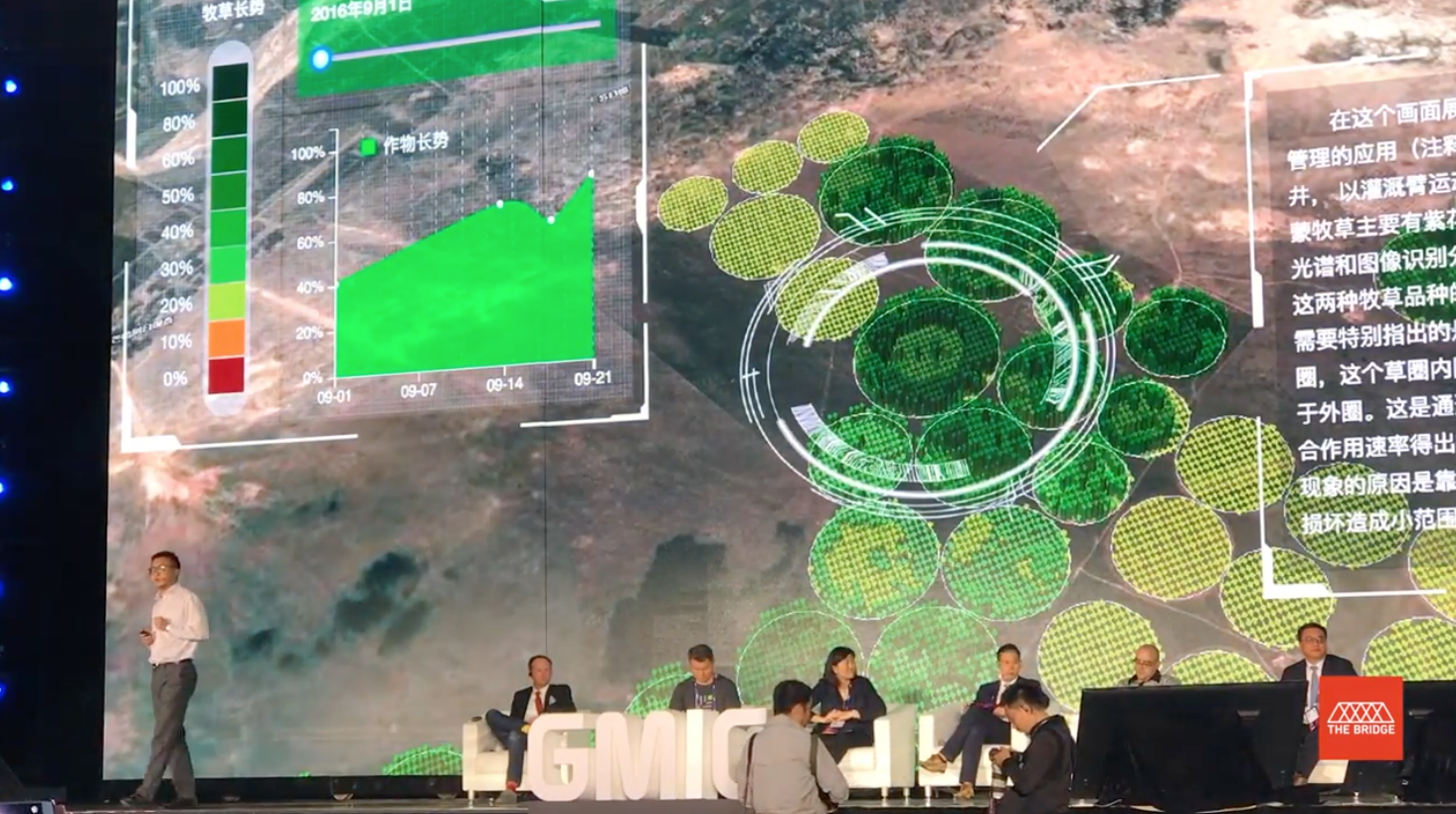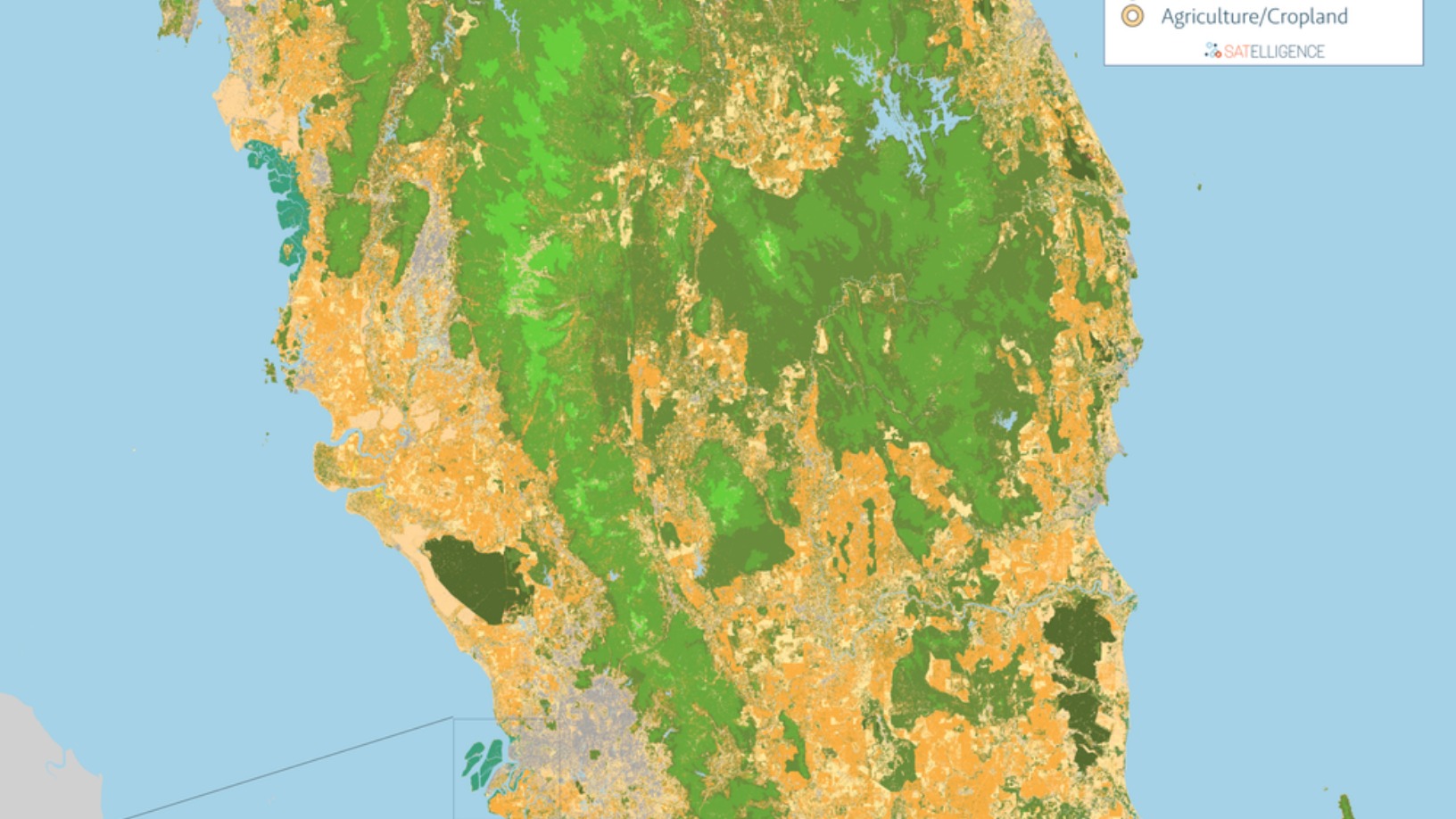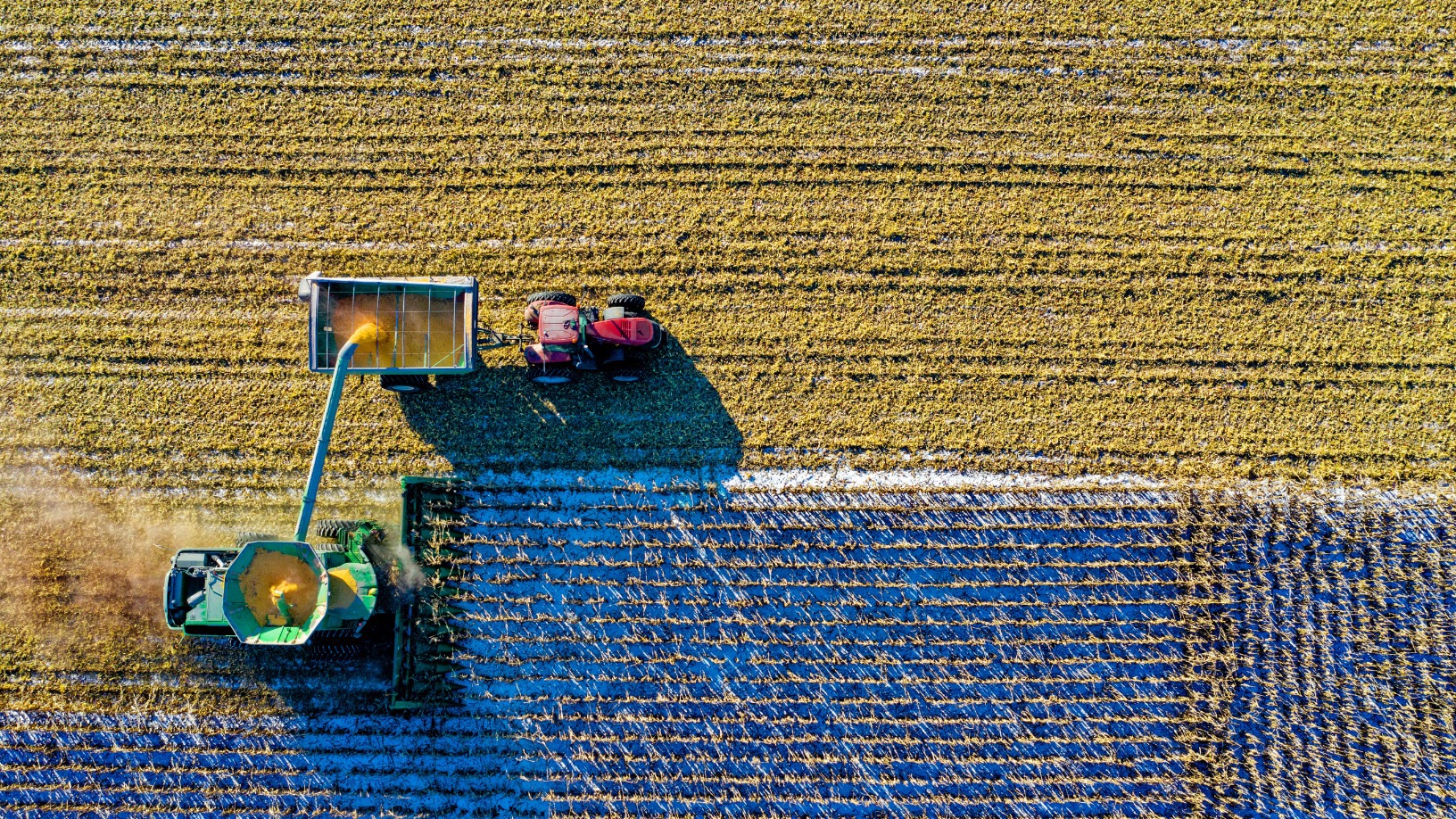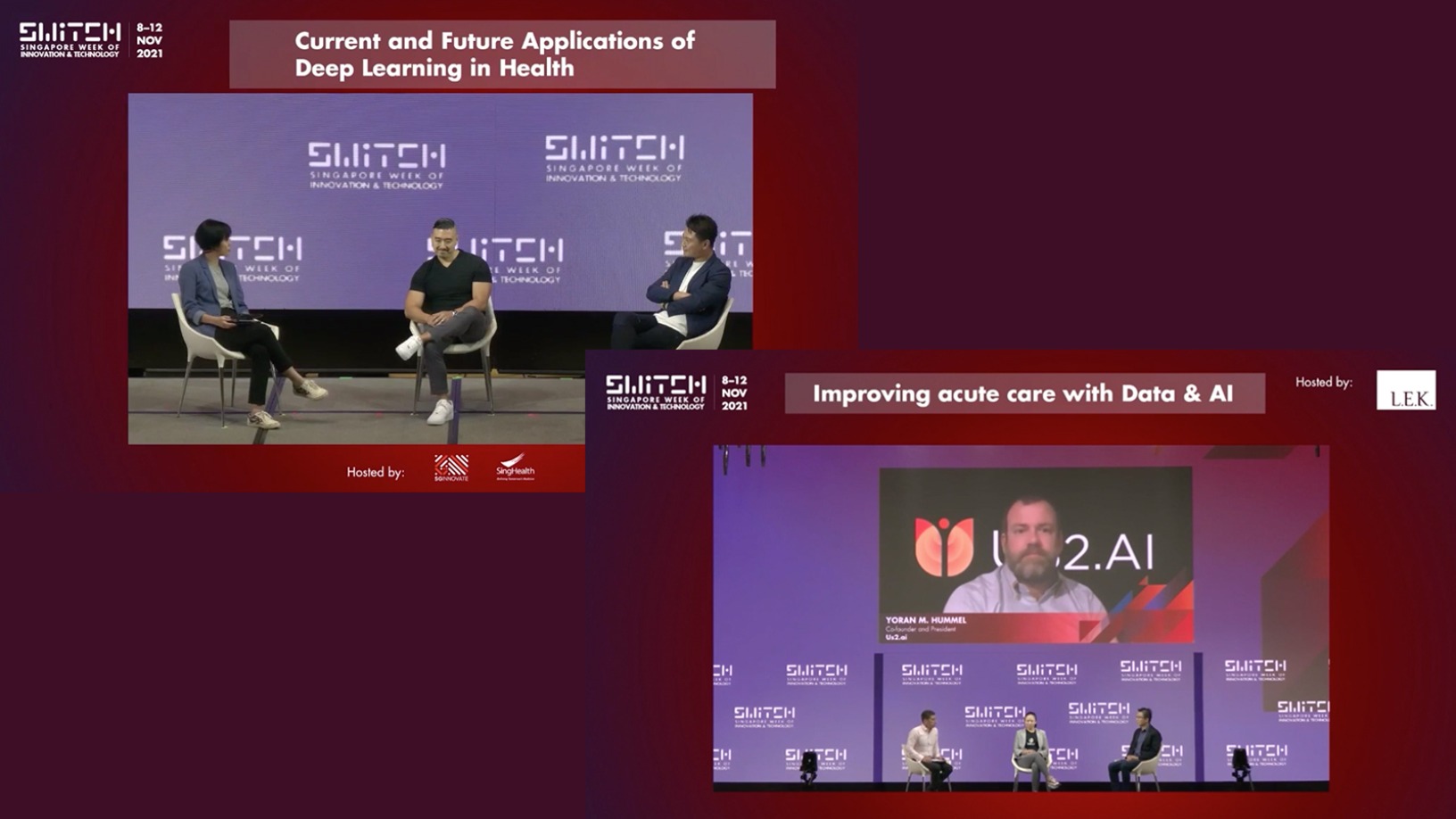Five years ago, two former NASA scientists returned to their native Beijing, keen to use satellite remote sensing and data science to modernize and improve China’s historically inefficient farming sector.
China is the world’s third-largest country but its per-capita farmland is less than half the world’s average. What’s more, productivity of the limited farmland is low because plots are mostly small and dispersed, and farmed by smallholders or cooperatives with strapped resources.
It’s a major issue that the pair, Zhang Gong and Gu Zhu, tried to address when they founded Gago Inc in October 2015. Through satellite and meteorological big data collection, processing, analysis and visualization, the agritech startup sought to drive China’s transition from a smallholder-based farming economy to one of large-scale operations and commercialization.
According to Zhang, the success of an industry in today’s internet age depends on its capacity to produce large amounts of data, but China’s agriculture sector had been set back by the manual reporting of data, until recently.
“When we have the corresponding [farming and weather] data, we can come up with more scientific and efficient farm management and production methods,” he said. “When we have such a data-supported intelligent farming management system, we can eventually achieve agricultural and rural revitalization.”
Currently, Gago surveys over 3m acres of farmland across more than 20 provinces and regions. The startup has added AI, machine learning, smart sensors and drones to its range of deployed technologies. Thanks to its expansion to the financial sector in 2018, Gago’s growth has accelerated in the last two years, with the average contract size at millions of RMB and annual operating income in the eight-digit range.
Predict natural disasters
Banks, insurers, asset managers and commodity traders, including China Merchants Bank and CITIC Securities, use the almost real-time data that Gago collects and analyzes for crop growth, yield and natural disaster predictions. One of the most natural disaster-ridden countries, China recorded 82,000 cases of natural disasters last year, 23.4% more than the annual average over the previous five years. Gago’s data platform, Yunjing, contains 50 years of agricultural meteorological data in East Asia, and can predict weather conditions two or three weeks ahead with a spatial accuracy of 1 km.
Using Gago’s other key product, Space Vision, financial institutions assess and update asset values and risks with greater accuracy and speed, allowing them to better manage any potential downside and make informed decisions. Banks lending to farmers use Gago’s data on plot size, crop type, growth, yield and value, and weather factors to determine the creditworthiness of the borrowers, the size of credit lines to be given and repayment timeframe, for example.
"In land rights transfer deals, we use satellite data to assess the land, whether it is suitable for cultivation, what types of crops are suitable, and forecast the yields and rate of return on investment," Chen Xuxiao, Gago Director of Business Affairs, said.
He cited the example of a client, a PE fund, which had acquired the rights to a 30-year use of 1m mu of land for RMB 500m, but discovered later that the land came in the form of 16 farms, all scattered across a huge distance. In the end, Gago used satellite data to trace out the extensions of each plot.
The client also wanted to improve the yield of potatoes growing on reportedly 300,000 mu of that acquired land, with the help of Dutch agro-consultants. Again using satellite imagery, Gago found out that the actual amount of land used to farm potatoes was actually less, at 251,000 mu. That also meant that the yield wasn’t as low as thought. “In the end, our technology helped this client generate value close to RMB 1m,” Chen said.
Insurance, government partners
More recently, in June, Gago partnered the Huai’an branch of People’s Insurance Company of China (PICC) in Jiangsu province in crop planting distribution, growth monitoring, meteorological disaster monitoring and early warning. PICC would use Gago’s data to support its insurance underwriting claims, investigation and damage assessment. The two companies also agreed to co-build the Huai'an Agricultural Insurance Digital Supervision Service Platform to help government departments supervise local farming insurance, as well as integrate and share agricultural and rural information.
Yunjing, Gago’s early smart farming management platform, processes data obtained from multiple satellites owned by China, the US and Europe, to give guidance on matters such as pest control, irrigation and use of farming machines. In 2018, Gago joined Huawei’s Cloud Market platform, which required the startup to diversify its services to meet demand for solutions in environmental protection, forestry, hydraulic engineering and safety monitoring.
Gago last raised private equity Series B financing of $20m from Telstra and DCM Ventures, after a Series A funding of $6m led by DCM Ventures in 2017 and more than RMB 10m seed funding from Matrix Partners China and Grains Valley Venture Capital in 2015. Its competitors include Jiahe Info, which was founded in 2013 and hailed as China’s first remote sensing agricultural company, and Novaspace, also Beijing based, which has raised an undisclosed amount of Series A funding from Sequoia Capital China.

Targets cooperatives
China is home to some 560m farmers and some 130m hectares of arable land, half of which are being managed by 500,000 farming cooperatives of various sizes. Those cooperatives are being forced to manage more farmland as many farmers abandon their farmland and move to big cities. That coincides with the country’s aims to digitalize some 15% of its rural economy by 2025, twice as much as that of 2018.
Gago sees the cooperatives as its potential users. A research report published in June 2020 noted that Chinese farming cooperatives are too small to implement digitalization successfully. They lack economies of scale, as well as the necessary technological tools, funding and market access.
“While the farming population in China is shrinking, the total amount of land for each farmer to manage is expanding. They need technology to achieve large-scale farming,” Zhang said. He has a doctorate in ecology from Utah State University and a master’s in geography from Peking University, after majoring in atmospheric sciences and meteorology at Nanjing University.
Gu, who is Gago’s Product Director and holds a PhD in space science, said the company is in constant dialogue with farmers. "Sometimes I would take our [agronomic] model to the farmers and tell the farmers that certain places may have wheat scab, but they might tell me right away that it’s normal for the model to go wrong.
“Through solid and meticulous communication with farmers, we constantly adjust our models, optimizing the parameter ratio, so we produce more and more accurate predictions. We want an end to those days when farmers had to depend on the heavens for their harvests, for a new era where they could make proper and timely adjustments ahead of the changes in weather.”












